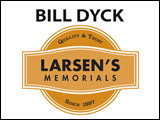The director of veterinary services with the Progressive Group of Companies warns many pork producers forced to convert from stall housing of gestating sows to group housing will be forced out of business.
The National Farm Animal Care Council’s Pig Code Development Committee is reviewing public comments on a proposed updated Pig Code of Practice and making any final changes.
Dr. Tony Nikkel, the director of veterinary services with the Progressive Group of Companies, says the biggest concern is the proposed mandatory conversion of sow barns designed for stall housing to loose housing by 2024.
There’s not a lot of extra funds out there and certainly the banks aren’t willing to borrow a whole lot of money to any pig producer in Canada at least at this point.
These sow farms, the majority of them that were built were designed specifically for gestation stalls and so there’s a lot of these farms that would have to do some major renovating.
It’s not just a matter of taking out the stalls and putting up pens.
There’s going to be concrete that’s going to have to be jack hammered out.
There’s floor heating in some of these areas that has to be jack hammered out.
There’s just the physical cost of renovating as well as the reduced amount of sows that these farms are going to be able to raise.
They’re going to be taking a hit on the conversion, they’re going to be taking a hit on the reduced inventory in the amount of pigs that they’re going to be able to sell out of these farms.
A lot of these flows are designed for that number of pigs to be produced from these sow herds and now you’ve short changed the whole chain downstream.
To amplify the problem there’s no additional revenue in producing these pigs from loose sow housing and so this is just a flat up straight cost and so it’s never going to be recovered.
Dr. Nikkel suggests, while requiring newly constructed barns to use group housing is reasonable, barns that use stalls should be allowed to continue to operate beyond 2024.



